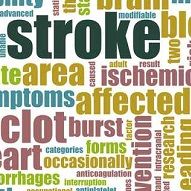Article
Long Hours Can Mean Stroke Risk
Author(s):
The stress of working long hours is more likely to lead to a stroke than a heart attack, UK researchers report.

Despite the cliché of an overworked employee having a heart attack, researchers have found that long hours are more likely to lead to stroke than to coronary heart disease. Writing in The Lancet Mika Kivimäki, PhD, of University College London, and colleagues analyzed the data from published and unpublished studies performed in Europe, the United States, and Australia.
Although long working hours is often implicated in cardiovascular disease, there is little evidence to substantiate the relationship between the two. Published studies may have been biased, reverse causation could be a factor, and long working hours are more common in high socioeconomic status occupations (SES) as is risk of cardiovascular disease, the authors noted..
The researchers performed a systematic review of published studies in PubMed and Embase, from inception until August 20, 2014, as well as examined reference lists in major reviews, eligible publications, and the Institute of Scientific Information Web of Science. They also used data from 13 European prospective cohort studies, and searched the InterUniversity Consortium for Political and Social Research and the UK Data Service. Analyses of the association between long hours and cardiovascular disease and that of long hours and stroke were done separately.
Individuals who work 55 or more hours per week have a 1.3 times higher risk of stroke than those who work standard hours, and though there did appear to be an association between working long hours and the risk of coronary heart disease, it was weaker. These findings did not vary between men and women, nor by geographical region.
“Sudden death from overwork is often caused by stroke and is believed to result from a repetitive triggering of the stress response,” according to the study. In addition, workers who sit for long hours have a higher risk of stroke, as do those with a history of heavy alcohol consumption. Some limited evidence seemed to show that people who work long hours are also more prone to ignore symptoms of disease.
Despite the large size of the study, there were some limitations. For instance, long working hours were self-reported and only measured one time. Salt intake and blood-based factors were not considered.


